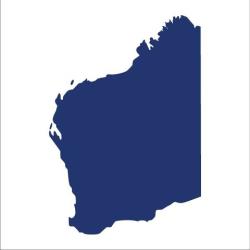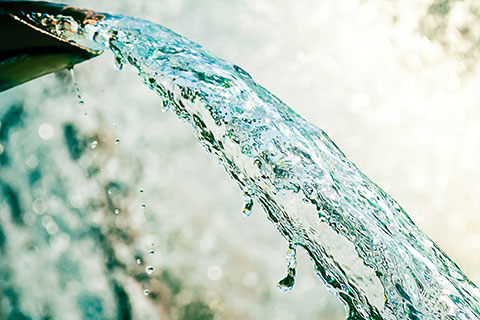
This project is jointly funded by the Australian Government ($310,000) and the Western Australian Government ($155,000). Australian Government funding is provided through the National Water Grid Fund.

Close up of water gushing out of the pipe
Project overview
Groundwater is an important source of water for communities or agriculture in many parts of Australia. However, groundwater can have salts, minerals or other chemicals dissolved in it. Water with these natural contaminants may need to be treated before it can be used. Treatment to remove dissolved salts and other contaminants is called desalination.
This project is a practical pilot demonstration of an emerging desalination technology called iFORO, at several sites in regional Western Australia.
iFORO, produces more useable water, has lower energy consumption and a smaller volume of waste brine than technologies that are currently being used in Australia. If the pilot is successful, the technology would be useful in locations where the source water is limited or where disposal of large brine volumes is problematic for the environment or communities.
iFORO could be suited to treating drinking water in some First Nations remote communities. It could also supply water for drinking, livestock or high value crops for farming, as a regular water source or a climate-resilient backup source when regular supplies are unavailable.
The project aligns with WA’s WaterSmart Farms program and Water Corporation’s responsibility for water supply to 141 First Nations communities.
Goals of the assessment
This pilot project aims to test the iFORO desalination technology in Australian conditions. The technology has a higher yield, lower volume of waste brine and lower energy requirements than conventional reverse osmosis systems.
If the pilot is successful, the technology could be used to increase water security for remote and regional communities, farms and industry, with less environmental impost that other desalination methods.
The assessment will:
- construct a pilot-scale Forward Osmosis - Reverse Osmosis desalination unit within a 20 foot sea container. The unit will be capable of producing approximately 10 kL/day of desalinated water
- test the technology on two sites. The sites will be selected to be representative of the field conditions at locations suited to full scale units if the pilot is successful
- assess operation and maintenance costs and reliability under field conditions for a period of around 2 years
- determine and demonstrate the economic, environmental and technical viability of the water treatment system
- engage with stakeholders to build water knowledge and local capability.
Environmental and cultural considerations
If the pilot is successful, the iFORO technology will be more environmentally sustainable than other desalination systems because it produces less brine. Brine is salty water produced as waste when water is desalinated. Brine disposal can be damaging for inland environments.
The Western Australian Government is also contributing $168,000 through in-kind contributions*.
*In-kind contributions are contributions of goods and services and do not contribute to the total project cost.

